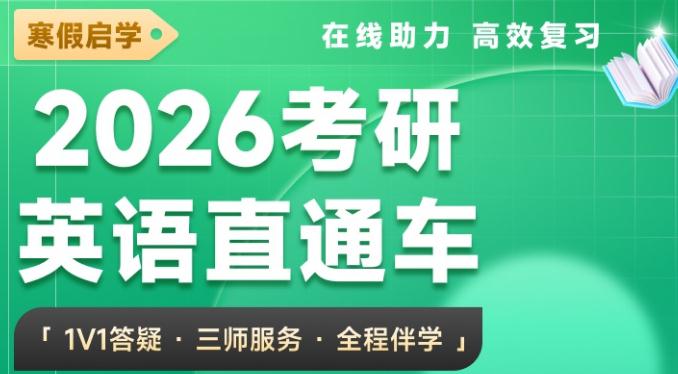1998-2022 ChinaKaoyan.com Network Studio. All Rights Reserved. 滬ICP備12018245號
考研英語時文賞讀:中美貿易戰將對全球企業產生沖擊
From the world’s biggest miners to German car makers and Japanese manufacturers of iridescent powder for cosmetics, producers around the world are bracing for collateral damage as the US escalates its tariff fight with China.
從全球最大的礦產商到德國汽車制造商,再到日本彩妝生產商,全世界的生產企業都在為美國對華關稅戰升級可能引發的池魚之殃做準備。
The Trump administration raised tariffs Friday on $200 billion of Chinese goods, sending tremors beyond the world’s two leading economies through Asia and Europe.
特朗普政府已決定從周五起對2,000億美元中國商品征收25%的關稅,受到震動的不只是美國和中國這兩個全球最大的經濟體,整個亞洲和歐洲都被裹挾其中。
The increase from 10% hits thousands of Chinese products in categories as disparate as seafood, metals and machinery. Consumer products being hit are as varied as laptops, handbags and cosmetics.
此次被加征關稅的中國商品覆蓋了從海產品到金屬再到機械聘等多達數千個品種,這些商品的關稅將從10%上調到25%。從筆記本電腦到手袋再到化妝品,受影響的消費品不一而足。
Beijing has said it is weighing retaliation, which would likely target US industries including agriculture and energy.
北京方面表示正在考慮采取反制措施,矛頭可能針對農業和能源等產品。
Globalized trade means the bilateral spat is dealing a blow to economic growth world-wide. The International Monetary Fund in April reduced its growth forecast for 2019 to 3.3%, down from 3.6% last year, and said trade tensions could weigh on it further.
在貿易全球化背景下,雙邊貿易爭端已經對整體經濟增長造成沖擊。國際貨幣基金組織在4月份將2019年全球經濟增長預期從去年預計的3.6%下調至3.3%,并表示貿易摩擦可能會進一步抑制全球經濟增長。
Countries affected by the US-China dispute include South Korea, which sends goods such as semiconductors and petrochemicals to China. Those goods are then incorporated into finished products that are shipped to the US South Korean exports, a quarter of which go to China, fell for the fifth straight month in April.
一些國家成為美中貿易爭斗的犧牲品。韓國4月份出口連續第五個月下滑,該國向中國出口半導體和石化等中間品,這些產品在中國經過加工后再出口到美國。韓國對華出口占到其出口總額的四分之一。
Japanese electronics companies are similarly dependent on China to assemble their components. Electronics and auto-parts maker Panasonic Corp , which has factories in China, said the trade conflict sliced about $365 million from its operating profit for the year ended March 31. The company forecasts a further $91 million in damage in the current fiscal year.
日本電子產品公司也對中國頗為依賴,把中國作為零部件組裝基地。這些公司擔心關稅將給利潤帶來沖擊。在中國設有工廠的日本電子產品和汽車零部件生產商松下電器產業公司表示,截至本年度3月31日,貿易沖突將該公司2018財年利潤拉低了約3.65億美元,預計當前財年利潤將被進一步拉低9,100萬美元。
(全文共255個詞,華爾街日報)
►重難點詞匯:
iridescent adj. (因光線不同而)色彩斑斕的 adj. 彩虹色的 adj. 熒光色的
collateral adj. 并行的;旁系的;附屬的 n. 抵押品;[法] 擔保品;旁系親屬
escalate v. 逐步增強;使……加劇;升級,惡化;升高,增加;迅速增加,迅速增長
tremor n. [醫] 震顫;顫動
disparate adj. 不同的;不相干的;全異的 n. 無法相比的東西
retaliation n. 報復;反擊;回敬
bilateral adj. 雙邊的;有兩邊的
assemble vt. 集合,聚集;裝配;收集 vi. 集合,聚集
來源未注明“中國考研網\考研信息網”的資訊、文章等均為轉載,本網站轉載出于傳遞更多信息之目的,并不意味著贊同其觀點或證實其內容的真實性,如涉及版權問題,請聯系本站管理員予以更改或刪除。如其他媒體、網站或個人從本網站下載使用,必須保留本網站注明的"稿件來源",并自負版權等法律責任。
來源注明“中國考研網”的文章,若需轉載請聯系管理員獲得相應許可。
聯系方式:chinakaoyankefu@163.com
- 2026考研英語全程班 寒假班
- 權威高配師資親授技巧,教研千錘百煉科學提分。直錄播課相結合精講互動二合一,專業團隊精細化作文批改。講練結合,隨學隨練穩步提升。支持試聽~
- 主講團隊:王江濤、譚劍波、董仲蠡、許聰杰、陳志超、潘赟、鄭艷彤、易熙人

掃碼關注
了解考研最新消息












